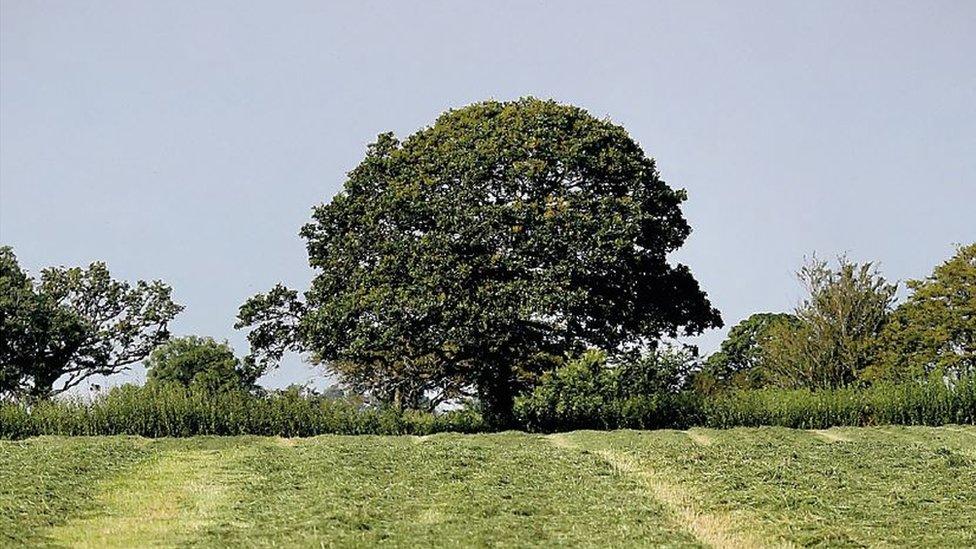Climate change: Welsh farmers to be paid more for protecting nature
- Published
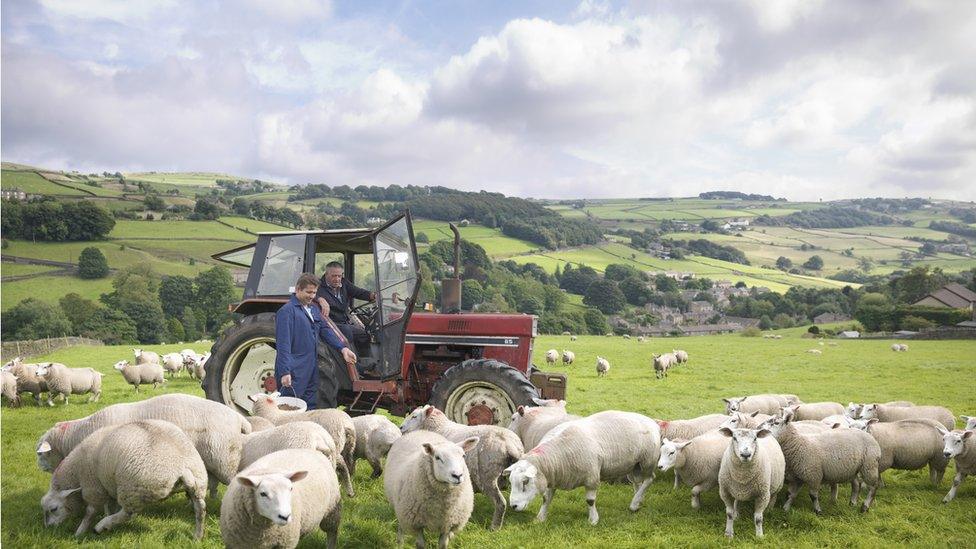
Could farmers do more to help tackle climate change?
Wales is to plough ahead with major reforms to agriculture that would see farmers paid to help protect nature and fight climate change.
The Welsh government said its long-awaited Agriculture Bill marked an "historic" moment.
Industry leaders added that the new legislation would "define farming in Wales for a generation to come".
The move comes after similar plans in England were thrown into doubt after the UK government signalled a review.
Wales' first ever Agriculture Bill has been in development since the Brexit vote in 2016, following decades during which decisions over farming policy and subsidies were driven by the EU.
It was finally laid before the Senedd on Monday to start its journey towards becoming law.
The bill paves the way for Welsh ministers to set up and operate a brand new subsidy scheme for farmers with a much greener focus.
Farms in Wales currently receive a share of over £300m a year in public funding, based largely on how much land they have.
But in future they'll be rewarded for environmental work such as planting trees, restoring peat bogs and wildlife habitats as well as deploying sustainable methods of food production.
The bill also sets up the framework by which the impact of the changes will be monitored and assessed with requirements for ministers to set indicators and targets, and report on progress.
In a UK first, the new legislation also includes introducing a complete ban on the use of snares and glue traps, which rural affairs minister Lesley Griffiths described as "not compatible with the high animal welfare standards we strive for in Wales".
She added that the "historic Welsh Agriculture Bill" outlined "how we can keep farmers on the land, produce food sustainably and deal with the climate emergency".
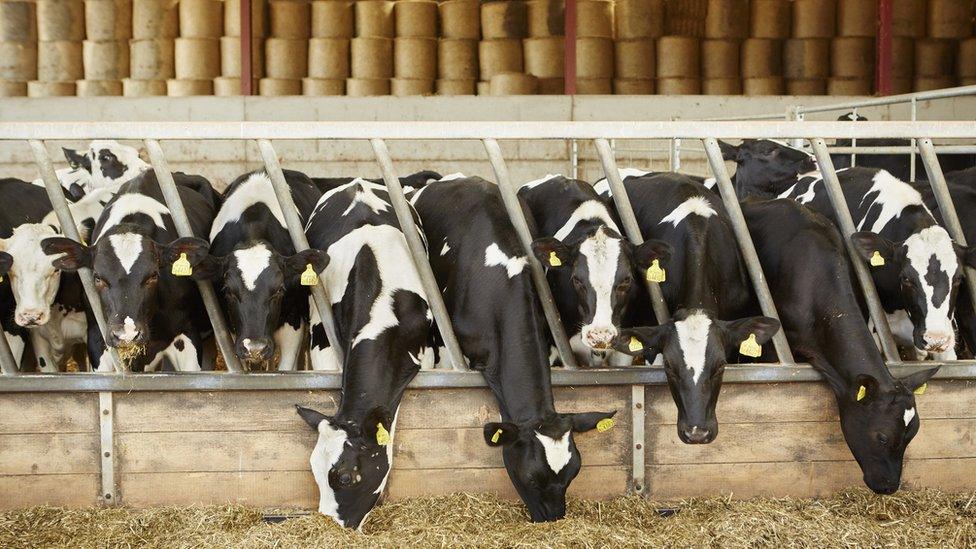
Unions want food production to have the same emphasis as the environment in the new bill
"I'm extremely proud of our farmers and the agriculture sector here in Wales. Through the provisions in the Bill, I want to ensure we can continue to support and encourage our farmers and producers to create and sustain a thriving agricultural sector," she added.
Meanwhile England was further ahead with its own subsidy reforms which planned to reward farmers for their environmental work.
But its new government has announced a review of these plans, prompting outspoken attacks from the environmental sector and some farmers, though the NFU union had requested a delay.
NFU Cymru President Aled Jones described the Welsh bill as a "landmark moment" and the most important piece of legislation for the industry since the post-war Agriculture Act of 1947.
"It comes at a pivotal time for society with the importance and fragility of food affordability and security, both at home and abroad, being brought into sharp focus by the effects of the devastating conflict in Ukraine.
"This is why the bill, as a key objective, must underpin the production of a stable supply of safe, high quality, affordable food in Wales," he said.
Wildlife charity WWF Cymru said polling it had commissioned suggested people living in the Welsh countryside largely supported the idea of changing farm subsidy payments to help nature.
The poll of 1,000 residents found 60% felt only farms working to protect wildlife should receive grants in future.
It also found 96% of those questioned agreed that Welsh farmers had an important role to play in protecting nature, while 88% said the same for tackling climate change.
However only a third (34%) thought farms were already doing enough.
Head of communications at WWF Cymru Rhian Brewster said the survey's results came "at a critical moment for Wales" and gave an insight into how rural communities themselves were feeling.
"The new Agriculture Bill gives us a once in a generation chance to set Wales on a path to a more sustainable future," she said.
"We, along with the majority of rural Wales, want farmers rewarded for adopting climate and nature friendly, regenerative farming practices - this vital transformation can only be achieved by bold changes to agriculture payments."
- Published23 April 2022
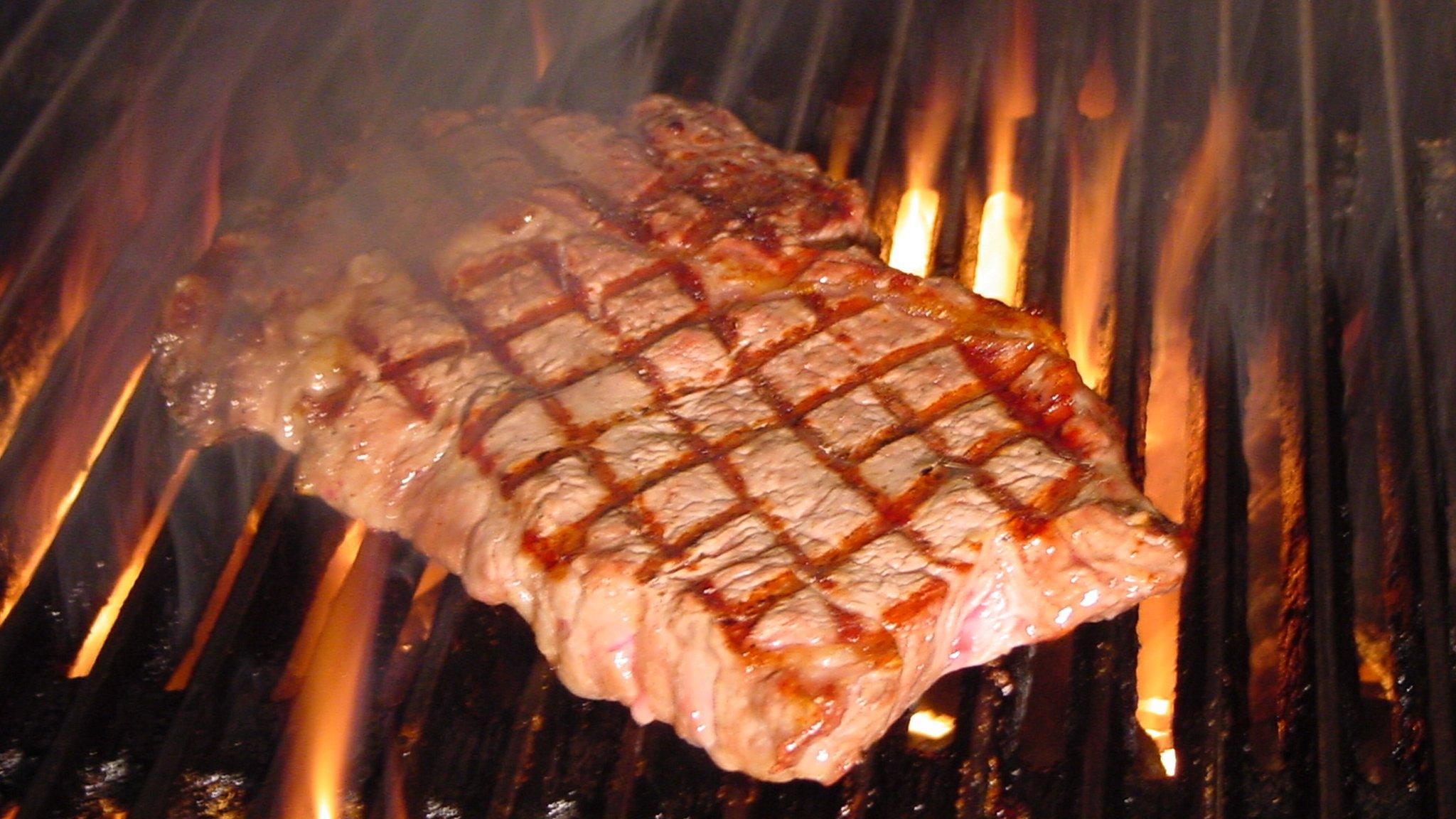
- Published22 March 2022
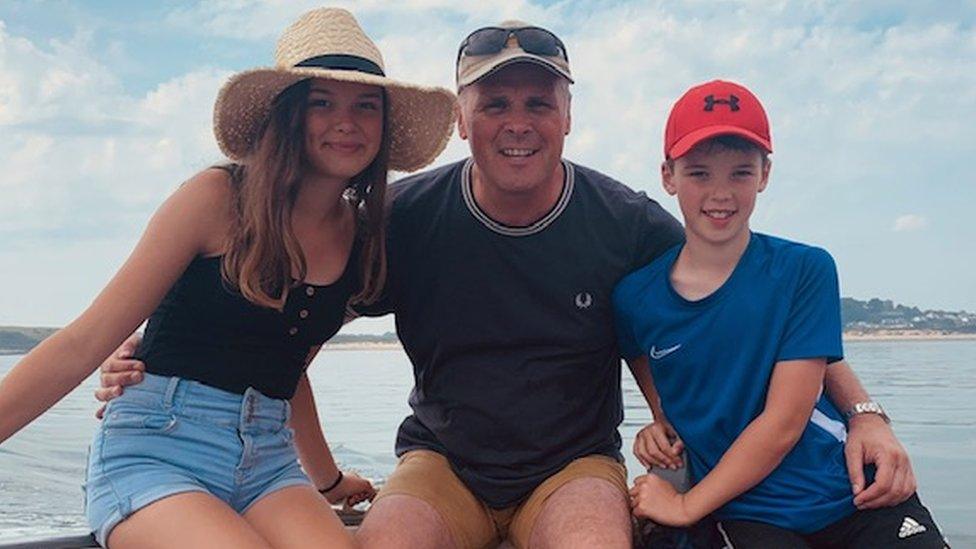
- Published16 September 2021
